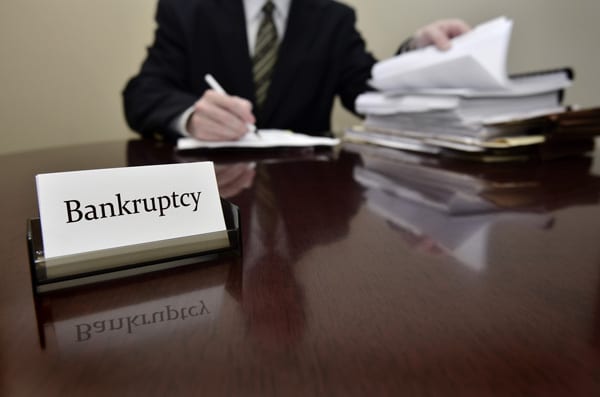Declaring bankruptcy means giving up certain property in order to have your debts forgiven. This includes giving up your home, car, and other valuables. You may also have to give up some of your income. Bankruptcy can stay on your credit report for up to 10 years, making it difficult to get loans and credit in the future. If you are thinking of declaring bankruptcy, it is important to talk to the Medlin Law Firm bankruptcy attorney to understand all that you may lose if you declare bankruptcy. Declaring yourself bankrupt doesn’t have to be the end of the world. In fact, it can actually be a pretty good way to get a fresh start if you’re in over your head financially.
That said, there are certain things that you will lose if you declare bankruptcy. Here’s a quick rundown:
1. Your Credit Score
Obviously, declaring bankruptcy is going to have a negative impact on your credit score. How much it will drop depends on where your score was, to begin with, but you can expect it to fall quite a bit. This is because bankruptcy stays on your credit report for up to 10 years. After ten years, the bankruptcy will no longer show up on your report, but the late payments and other negative information leading up to the bankruptcy will still be there. A low credit score can make it difficult to get loans, credit cards, and even a job.
2. Your Possessions
When you declare bankruptcy, you have to give up certain possessions in order to have your debts forgiven. This is called liquidation. The trustee assigned to your case will sell off your assets and use the money to pay off your creditors. The possessions you have to give up depending on the type of bankruptcy you file, but they can include your home, car, jewelry, and more. The factors that affect the type of possessions you have to give up include the state you live in, your income, and whether or not you have any dependents.
3. Your Retirement Savings
In some cases, you may have to use your retirement savings to pay off your debts. This is more likely to happen if you have a large amount of debt and few other assets. However, there are some protections in place to keep you from having to completely deplete your retirement savings. For example, most 401(k)s and IRAs are protected from creditors. It is important to talk to a bankruptcy attorney before you declare bankruptcy to make sure you understand all that you may lose to avoid any surprises.
4. Your Job
In certain circumstances, you could lose your job if you declare bankruptcy. For example, if you work in a field that requires bonding or security clearance and you file for bankruptcy, your employer may let you go because you are now considered a higher risk. Moreover, if your job involves handling money and you file for bankruptcy, your employer may be concerned that you will misuse company funds. While it is not common to lose your job simply because you declare bankruptcy, it is something to be aware of.
5. Your Insurance
In some cases, your insurance company may drop you if you declare bankruptcy. This is most likely to happen with health insurance, but it could also happen with life, auto, and homeowners insurance. If you are dropped by your insurance company, it can be difficult to get new coverage because you will be considered a high-risk customer. Most insurance companies use credit scores to determine rates, so a low credit score due to bankruptcy can make it difficult to get affordable insurance.
6. Your Tax Refund
If you owe money to the IRS, they have the right to take your tax refund to pay off your debt. This is called a tax offset. The IRS can take your refund even if you are in the process of declaring bankruptcy. However, you may be able to work out a payment plan with the IRS that will allow you to keep your refund.
7. Your Driver’s License
In some states, if you owe money to the state for things like unpaid traffic tickets or child support, the state has the right to suspend your driver’s license. This can make it difficult to get to work or take care of other responsibilities. If your job requires you to drive, a suspended license could lead to you losing your job.
8. Your Professional License
If you have a professional license, such as a license to practice law or medicine, you could lose it if you declare bankruptcy. This is because bankruptcy can be considered proof of financial mismanagement. However, losing your professional license is not common and usually only happens in extreme cases.
Bankruptcy is a serious decision that should not be taken lightly. There are many things to consider before you declare bankruptcy, and it is important to understand all that you may lose in the process. Talk to a bankruptcy attorney to learn more about what you may lose if you declare bankruptcy.
